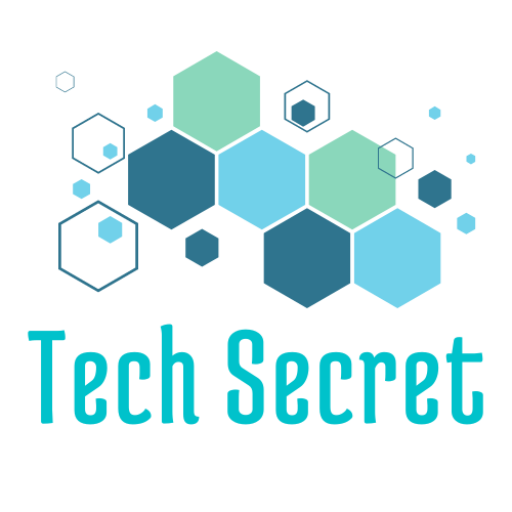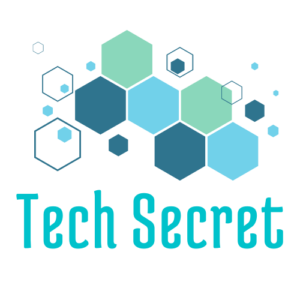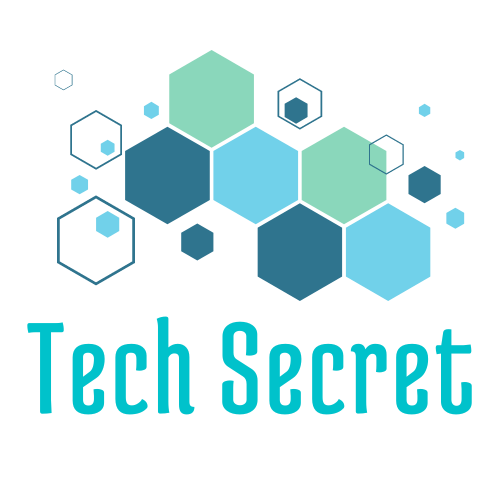Improve your skills with the best online coding courses, both paid and free.
The best online coding courses are a flexible and convenient way to develop coding skills on your own schedule, regardless of where you are. Whether you’re new to coding and need an introductory course, or you already work in coding and want to expand your skills or add a new coding language to your CV, there are plenty of online coding courses that can help.
However, not all online coding courses are the same, and the materials, support, and practice opportunities available can vary greatly. To assist you in making the best decision, we’ve compared the providers of the best online coding courses we’ve found. Many of the providers listed below offer a variety of coding courses on various topics and levels. We made our selections based on the overall quality of each provider’s course structures, resources, expert knowledge, and supportive community.
We believe that paid coding courses provide the most comprehensive experience, but we’ve included the best free online coding courses we’ve found because they can be useful for those just getting started and looking for a no-risk introduction to coding without the investment. If you finish a free course and decide that coding is for you, you’ll probably want to expand your knowledge with a paid course. Once you’ve decided, you’ll probably want to invest in one of the best programming monitors to help reduce eye strain while coding. We also have a list of the best programming laptops.
The best online coding courses to start today
01. Coursera
Coursera is a highly regarded, academically rigorous coding course. Stanford professors founded the site, which continues to collaborate with universities, colleges, and corporations to provide a comprehensive suite of courses, degrees, and specializations. While it may surprise you, Coursera has a good number of free coding courses available (though you’ll usually have to pay if you want to receive the final certificate).
There are nearly 300 online coding courses on the platform, ranging from Python and Java to C and C++. There are some good beginner-level coding courses available; if you’re starting from scratch, we recommend ‘Web Design for Everybody: Basics of Web Development & Coding’ from the University of Michigan. Advanced users may want to look into IBM’s ‘Applied AI with Deep Learning’ course. We’ve found Coursera to be an excellent choice for learning new coding skills, regardless of where you are on your coding journey.
02. Pluralsight
Pluralsight may have the most appealing website of all the providers in our guide to the best online coding courses. We appreciate the platform’s straightforward, user-friendly design. In our experience, course content is also excellent. You can create a ‘path’ through a number of different courses to give yourself a thorough grounding in multiple subjects, or you can simply choose a single course on a single topic.
We also like the videos because they have a quirky charm to them. Some users have compared the experience to watching Bill Nye, which we think is a strong recommendation. It certainly outperforms many of the rather dry resources provided by many online course providers. The process is straightforward: you watch the video, then work on your tasks, returning to the video for pointers as needed. There’s also a system in place where you can earn points in classes to ‘buy’ answers, which can come in handy if you get truly stuck.
03. Udemy
Udemy has a truly massive catalog of online courses on a wide range of topics. While it isn’t explicitly aimed at coders, it has the most extensive collection of online coding courses we’ve seen, with over 500 JavaScript courses and nearly 1,000 Python courses. Whatever area of coding you want to learn about, we’re confident there’s a course for it.
While the large number of courses available (over 183,000 at the time of writing) makes it difficult to find the good stuff, if you have a little patience and willingness to sift through what’s available, you’re highly likely to find something that fits what you’re looking for. The price range is as broad as the range of courses, ranging from free to hundreds of dollars, so there’s something for everyone, though how much you pay will often show in the course’s completeness.
04. Free CodeCamp
Free Code Camp is a non-profit interactive learning platform that is one of the best resources for those who want to learn to code for free. It provides over 6,000 tutorials, and the site’s creators claim that over 40,000 graduates are working at tech companies such as Microsoft and Google.
The Free Code Camp curriculum is built around an integrated code editor. This allows you to save as you go and provides you with a solid foundation in the fundamentals. The courses available do provide certification, with most requiring you to complete five required projects to demonstrate mastery of the relevant skills. There are classes on responsive web design, machine learning, JavaScript algorithms, and a variety of other subjects. We think it’s well-designed to fit around other commitments and a good way to get a foundation in the skills required for coding jobs.
05. Shaw Academy
Shaw Academy provides a suite of coding courses that are quite popular – the Web Design course has over a million graduates. The academy’s courses, which are accredited by Austin Peay University, are primarily aimed at beginners, and they are ideal for anyone who is just beginning their coding journey. There are Python programming courses available, as well as a coding for kids course.
We’d recommend Shaw Academy in particular if you want to create an app, as the coding and technology class covers this in depth. There is also assistance available for creating a website using HTML, CSS, and JavaScript. Best of all, a generous four-week free trial period gives you plenty of time to test out a course before deciding whether or not to enroll. If you do, there are several payment options available.
06. Envato Tuts+
Envato Tuts+ is a comprehensive training platform that offers courses on a wide range of design topics, from coding and web design to 3D and illustration. There are thousands of free courses, guides, and tutorials available. While Envato Tuts+ is a fantastic resource for general design knowledge due to its vast range of content, it can be difficult to find a course that interests you because courses range from very brief introductory guides to more advanced courses. However, if you take the time to look around, you’ll find a plethora of free courses on JavaScript, React, PHP, Laravel, and other topics.
07. Skillshare
If you want something more specific, Skillshare is a subscription-based service that offers thousands of courses in a variety of subjects. Many of its best coding courses are taught by top web developers like Rachel Andrew, Christian Heilmann, and Jenn Lukas. Courses include supplementary materials created by the instructors as well as projects to which you can apply your new skills. There’s also an iOS(opens in new tab) or Android(opens in new tab) app, which we’ve found to be a convenient way to watch courses while on the go.
There are some free courses, and you can get a premium subscription for free for one month, but after that, there is a monthly fee of $32.
08. General Assembly
Do you prefer the concept of live coding workshops? It may seem unusual these days, but General Assembly hosts livestreams on topics ranging from ‘Intro to Coding’ to ‘Python Programming Crash Course.’ Some are free, but the majority are not. To gain access, purchase an e-ticket and then log in to the live stream when it begins (be aware of timezone differences!).
Live workshops are a good way to ‘force’ yourself to learn if you lack the motivation to learn at your own pace. Furthermore, having something on the calendar increases the likelihood that you will find the time to complete it. If you miss the class, you should be able to find a replacement.
09. Udacity
Udacity provides solid guides on a wide range of topics, as well as a large number of free courses. It also offers a variety of ‘nanodegrees’ that cover in-demand skills. One feature we like about the structure is that all of Udacity’s coding courses are summarized before you start, outlining the difficulty level, why the course is important, any prerequisites for taking it, and the project you’ll complete at the end. It’s useful to know what to expect.
10. Treehouse
Treehouse strives to make learning enjoyable. The structure is straightforward: watch video courses (which are updated on a regular basis to reflect industry changes), practice your new skills with quizzes and challenges, and earn badges to reflect the skills you’ve already mastered. We discovered that this gamification is very well designed and can really help to motivate learning.
It also has one of the most extensive educational materials libraries on this list. It not only provides a wide range of coding courses, but it also has ‘workspaces’ where you can try out new projects on your own time and a library with videos of industry professionals giving talks. It also has an iPad app where you can continue your learning.
How do I choose the best online coding course for me?
We recommend that you consider your personal learning style when selecting the best online coding course for you (for example, verbal, visual, auditory or kinesthetic). A combination of all four methods is frequently the most effective; for example, a video-based course with transcripts you can read, diagrams and images, and practical tasks you must complete. App-based courses are frequently effective at achieving this mix.
Another thing to consider is whether the coding course provides opportunities for real-world problem solving. Many video courses have you coding along with an instructor, but they don’t challenge you with the kinds of real-world problems you’d have to solve on the job, such as cause and effect analysis, debugging, and refactoring.
Finally, consider whether the course you’re interested in has a community where you can ask and answer questions from other students. You can sometimes learn just as much from the community of other students because it allows you to share problems and questions and reinforce learning with the help of others.
What code should I learn?
What code you learn will be heavily influenced by the industry you wish to work in. If you want to work in mobile apps, for example, you should learn Java, Kotlin, and Swift. If you want to work in gaming, you will need C++ and the Unreal Engine, as well as C# and the Unity Engine. For operating systems, you should learn C, and for websites, you should learn JavaScript or TypeScript for the front end and Python or Ruby for the back end. See our guide to the four most popular programming languages for more information.
Do I need coding certification?
Another factor to consider when selecting the best coding course is certification. It can be very useful to have proof of your research that you can bring to interviews or add to your LinkedIn profile. Whether you need certification to demonstrate your new skills may be determined by where you want to work, as qualifications are more likely to be requested if you apply for an in-house position.
Most courses will provide some sort of validation to certify that you’ve completed their syllabus, but the value of that validation will vary depending on how well-known the course provider is, which is why we’ve included some highly regarded online coding course providers in our list above.
Do I need to learn to code to build a website
No, learning to code is not required to create a website. If you’re not sure about diving into coding and want to get a website up and running as soon as possible, you can use one of the best website builders in conjunction with the best web hosting and be online in no time with no coding required.
Web builders provide templates that you can then customize to meet your specific requirements. Of course, the extent to which you can customize the site is limited. And, while web builders are improving all the time, knowing at least a little html and CSS will come in handy if you want to go beyond the most basic customisations to get your site exactly how you want it.
Our selected examples of great CSS animation and parallax scrolling, as well as our recommended steps to achieve the perfect website layout, may provide some web design inspiration.



